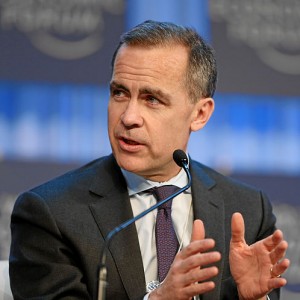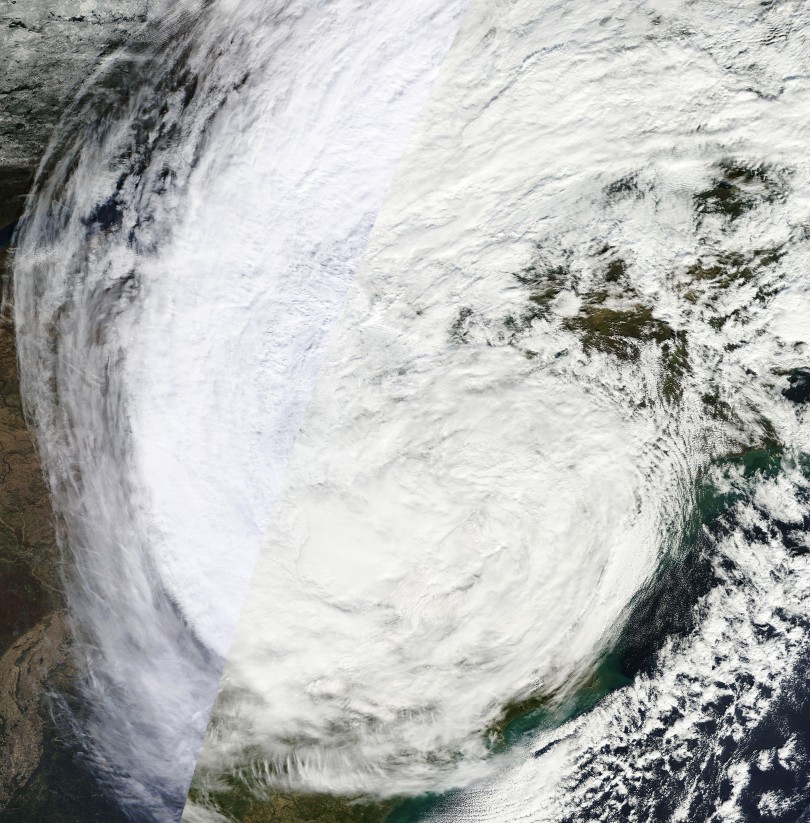aNewDomain — Mark Carney, the governor of the Bank of England, warned of global financial instability due to climate change in a speech earlier this week at a Lloyds of London event.
 Carney told the banks and insurance companies in attendance that they needed to adjust to a changing world climate. His speech was far less about protecting the environment than it was about protecting the world’s financial system.
Carney told the banks and insurance companies in attendance that they needed to adjust to a changing world climate. His speech was far less about protecting the environment than it was about protecting the world’s financial system.
Carney said some of the financial effects of climate change are already evident.
Carney noted that inflation-adjusted insurance losses from catastrophic climate events tagged to global warming have increased from an annual average of around $10 billion in the 1980s to around $50 billion over the past decade.
For example, the 20 centimeter rise in sea level at the tip of Manhattan since the 1950s increased insured losses from Hurricane Sandy in 2012 by 30 percent in New York alone, said Carney, citing a Lloyds of London study.
Hurricane Sandy resulted in some $75 billion in damages, and many of those damages resulted in insurance claims that had to be paid out from the funds of insurers.
The Bank of England is the world’s second oldest central bank and serves a function for the United Kingdom similar to the Federal Reserve System in the United States.
The Bank of England is one of the world’s key banks for setting world financial policy and a member of the G7 group of finance ministers.
As Carney noted, a sustained stream of insurance losses alone could create global financial instability.
Insurers tend to place their funds in stable investments, and the continued sale of those investments could have detrimental impacts on the financial system.
But the financial impacts from climate change can go far beyond insurance payouts, according to Carney, and include “global impacts on property, migration and political stability, as well as food and water security.”
In his speech, Carney suggested that it might not be prudent to exploit and use the world’s remaining reserves of fossil fuels since the ultimate costs of using those fuels are unknown and uncertain.
He suggested that insurance companies expend funds financing the development of alternative energy sources and create a financial climate that rewards companies for minimizing their carbon footprint.
Of course, it remains to be seen how much policy change can be made without the active involvement of the United States, the world’s largest economy. U.S. policy makers have thus far been slow to warm to global warming, in part due to the powerful U.S. energy lobby.
Greenpeace claims that the billionaire Koch Brothers alone have spent nearly $80 billion in the past 20 years on organizations that deny climate change. New York Magazine observed recently that the U.S. Republican Party was the only climate-change denying political party in the developed world.
Carney’s remarks and the international insurance and banking industry’s acceptance of those remarks indicates that the world outside the United States has decided to fill the leadership vacuum on climate change and move forward.
Here’s Carney’s speech, below.
Video: Courtesy of the Bank of England video channel
Here’s a transcript of Carney’s remarks:
Bank of England remarks on climate change
For aNewDomain, I’m Tom Ewing.
Photo and video credits: Hurricane Sandy from space by NASA [Public domain], via Wikimedia Commons; Mark Carney, by World Economic Forum from Cologny, Switzerland [CC BY-SA 2.0], via Wikimedia Commons.













